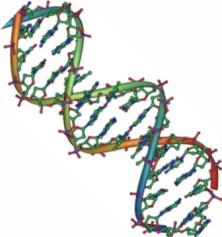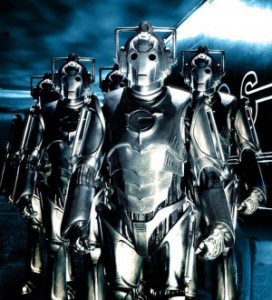<<< Part Two: Environmentalism & Neural Interfacing
If you haven’t already read over the past two entries in the series, do use the links above to go through what has previously been discussed. Now that we’re onto part three, I wanted to bring up two more sectors that we’ve focused quite a lot on here at Future Conscience: genetics and artificial intelligence.
They are sectors that the first decade of the 21st century really proved the validity of, and solidified both of them as central to our collective vision of future society. Even if you aren’t at all interested in scientific progress or future technology, if you’ve got a television or an internet connection you’ve already heard a lot about these two fields…

5. Genetics – The first decade of this century began with a very clear goal when it came to the development of genetics: sequence the human genome. Within the first two years, we had done just that (well, for the most part) and the realms of possibility that such an achievement brought have only just begun to be understood almost ten years later.
First and foremost, are the huge benefits that the field of genetics can bring in the areas of disease diagnosis, monitoring and treatment. Understanding the genetic components, where present, in many different diseases leads directly to more effective treatments and drugs that are more acutely focused and therefore often have far fewer side effects. Not only this, but the field of genetics is incredibly useful when used to examine things such as the DNA of germs and viruses – leading to the discovery of new ways to deal with their rapid genetic mutation, particularly in environments such as hospitals.
On an individual level, what we are going to see within the next decade is the ability to afford to have our own DNA sequence mapped out. There are already a number of different commercial enterprises that are fighting to be the first to get such a procedure under the US$1,000 mark, and it is a milestone that we can be assured will be met before this decade is completed.
An understanding of your personal DNA sequence of course leads to knowledge of disease susceptibility, which in turn can lead to pre-emptive intervention strategies. On a personal level, this is quite exciting news when you first think of the positive implications for life-expectancy. However, there are some worrying hurdles that will need to be overcome with the advent of such technology.
The first one will come from the psychological impact of knowing that you are genetically predisposed to fatal illnesses, the foreknowledge of such might (nay, will) lead to cases of depression and other forms of emotional turmoil that are difficult to predict before you are overcome by them. Further to this personal impact, there are the vast ethical implications of how wider society will interact with knowledge of your personal genetic weaknesses (and, to a lesser extent, strengths).
Between the incredible advancements in medicine, biology and longevity, and the incredibly complicated ethical questions that will need to be discussed and dealt with, the field of genetics is definitely one to watch over the coming decade.
[ad name=”Google Adsense-Link Banner x4″]
6. Artificial Intelligence – There are some people out there who will tell you that, as an entire species, humanity might be on the verge of becoming obsolete. The reason why? Because once we develop an artificial intelligence that is truly sentient and capable of self-replication it will evolve and reproduce at such an exponential rate that we will never be able to keep up with it.
For those of you who haven’t come across this idea before (at least, not outside of the confines of a science fiction movie or novel), it is a subset of a theory known as The Singularity. At such a point, we either merge human technology with human intelligence or we fall to the wayside and lose our dominant position entirely.
Whilst the theories that lead to such conclusions are certainly eye-opening, and in many ways quite convincing from a logical perspective, the field of artificial intelligence does not have to be overcome by the doomsday scenarios that it tends to attract.
Artificial Intelligence, as a field of study, is now about 60 years old if we presume that Alan Turing marks the beginning of it as a true sector of human endeavour. From the humble beginnings of teaching a computer to play checkers in 1952, IBM has consistently been at the forefront of artificial intelligence research and today is still leading the way with its Blue Brain project that is progressing quickly towards its goal of creating a supercomputer capable of perfectly simulating the human brain.
The research possibilities alone are staggering, and it is in this area that we are most likely to see progress over the next decade. Practically speaking, one of the Holy Grails of artificial intelligence research revolves around what initially seems to be a rather mundane tool: the search engine. When you consider the increasing amounts of information becoming available to us through the internet, the ability to quickly and accurately locate needed information will become central to our ability to utilise this vast repository of knowledge. With increased artificial intelligence capabilities, the search engine will be able to ‘understand’ the requests you are putting before it and work with you dynamically to ensure that you find exactly what you need.
Automation of transportation systems; administration and project management; the manufacturing process; and even many forms of scientific research will be made increasingly feasible with the advent of improved artificial intelligence. What this means for society as a whole is yet to be seen, and, even when we just consider the implications of higher unemployment rates because of such automation, it is clear that new paradigms will need to emerge. Love it or fear it, artificial intelligence is truly on the cusp of a major breakthrough – and one that is likely to occur within the next three to five years.
End of Part Three
So there you have it, talk of sentient robots deciding us puny humans are an irrelevancy marks the end of part three of our ’10 sectors to watch…’ series. I didn’t really want it to come across that way, and I hope that you will look past the many possible End Times scenarios that rapid progress can conjure up. One thing is for certain, the next decade is going to be a truly revolutionary one – the kind where we must come together to collectively form new social paradigms and modes of identity creation.
Join us next time as we continue to look at two more sectors that are likely to change the world as we know it over the next decade. As always, if you have any comments or thoughts you would like to share in relation to the topics of genetics or artificial intelligence discussed in this post please do leave a comment – we’d love to hear from you!





